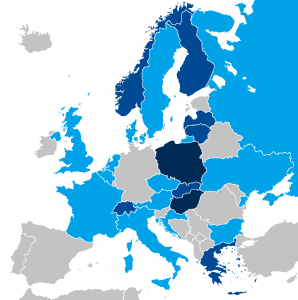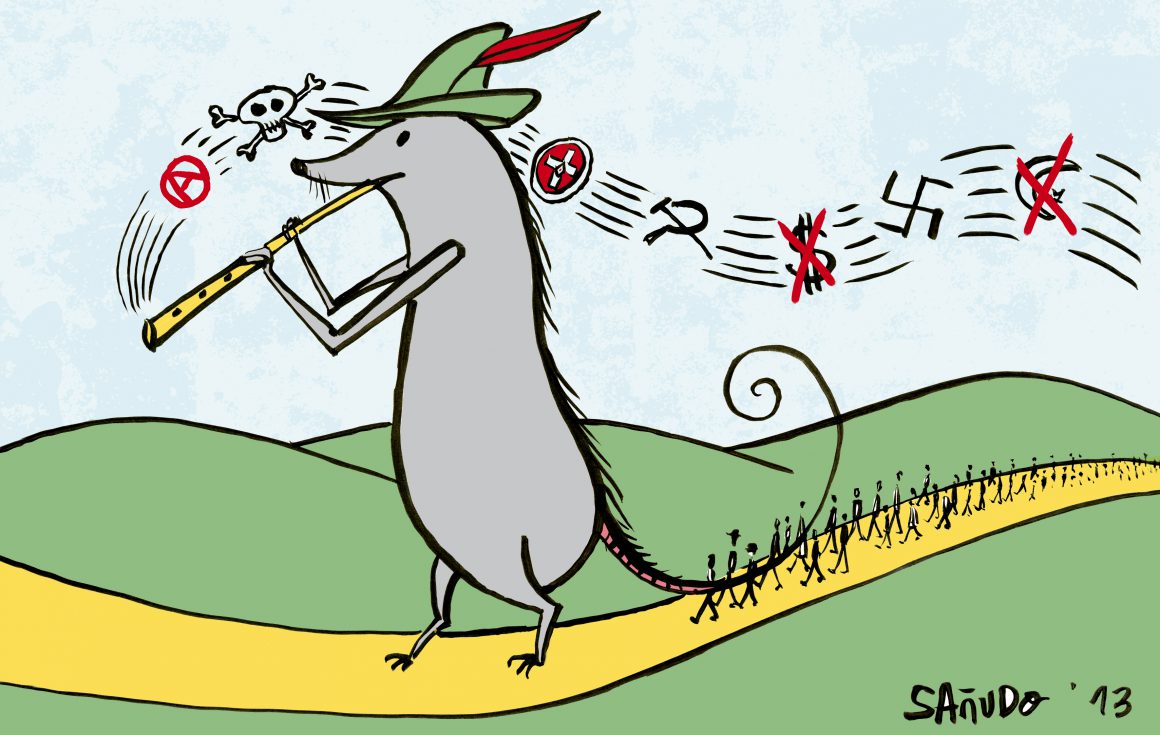It is all too easy for populists to pin their domestic failures on the EU, but the only solution to Europe’s crises is deeper integration and “more Europe”.
Dutch Prime Minister Mark Rutte has warned that Europe will fall “over the edge” unless the European Union scales back its ambitions and mainstream politicians start listening to the demands of voters flocking to populist parties.
In an attempt to diagnose the populist surge that has dominated European politics in 2016, Rutte stated that Europe cannot push its project by demanding “more Europe”. He was referring to those wishing to shift powers from member states to Brussels. “We are losing the population in the process,” he added.
It is disappointing that so many Europeans have chosen to turn to so called “populist” parties, on either side of the political spectrum. And yet, it is not in the least surprising.
It is disappointing that so many Europeans have chosen to turn to so called “populist” parties, on either side of the political spectrum. And yet, it is not in the least surprising. For decades, popular opinion has been ignored, both by national elites and governments and by the EU itself. Only recently have the European institutions really opened up and reached out to the public, in an effort to make themselves more approachable and better understood.
On the other hand, national governments have often scapegoated the EU for their own mistakes, while happily claiming its successes as their own. There has rarely been any considerable effort to engage the public with a pan-European civil society movement.
National governments have often scapegoated the EU for their own mistakes, while happily claiming its successes as their own.
In addition, each national government, in a desperate effort to promote their own country’s interests – or rather those of their financial backers – have adopted disastrous financial and social policies that have brought Europe into economic decline.
Not only have citizens been inadequately informed, even when they have been given the option to vote in referendums, their opinion has largely been rejected until they vote again for the planned outcome. (With the exception of Brexit, perhaps.) That has inevitably fed a growing distrust and suspicion among the European electorate, mainly regarding the EU’s undeniable democratic deficit.
The sinking flagship
The exposure of the euro‘s weakness by the economic crisis dealt another blow to the confidence of Europeans in the continent’s most ambitious project. Europe set up a single currency without a common taxation system or political integration. It was certainly not a functioning monetary union.
The result was the near collapse of the euro, which forced voters to make massive and painful sacrifices to stabilise the continent’s banks and save the currency. Yet, it is becoming obvious that despite all the measures that have been adopted, the problem has not been decisively solved. Because ultimately, in order for the euro to survive, it needs further political integration.
Scaremongering and sewing confusion
As if the economic crisis and the austerity measures that followed were not enough, the prolonged war in Syria and instability in other parts of Europe’s neighbourhood have caused a sizeable refugee and migrant influx to the continent.
That has further challenged the European public’s openness and tolerance. Populist groups and figures have taken advantage of the situation and promoted scaremongering and further confusion, in order to gain more power and influence to satisfy their ambitions.

Right-wing populist parties in European national parliaments (March 2016). Illustration: Wikimedia Commons
In some EU countries, they are thriving, even threatening the established parties. And while it is great to see the governing elites finally being punished for their corruption, bad choices and disastrous policies, the alternative is also horrifying.
It is sad to see that we are running out of options in Europe, to really transform our continent. The establishment parties have lost the trust of the voters, yet their challengers offer few solutions of their own. Apart, of course, from populist, knee-jerk reactions like abolishing the euro, withdrawing from the EU and restricting immigration and the free movement of people.
Citizens need to understand that migration, the euro as an idea or the EU with its single market and the free movement of people, are not the real problems. If there were properly established and managed, their impact on our everyday lives would be a more positive one, both subjectively and objectively.
The electorate has not rejected outright the idea of ‘more Europe’. Rather, it lost its faith in it.
And the electorate has not rejected outright the idea of “more Europe”. Rather, it lost its faith in it. Yet that is primarily the fault of the national establishment politicians. They have purposely disconnected communication between the EU and its citizens, with the predictable result that discontent surrounding the EU is on the rise.
More Europe, that is more transparency, democracy and less inter-governmentalism, is the solution to the EU’s current predicament. But sadly, the European elites do not want to lose power by handing it over to a fully functioning European democracy. So we go round in circles while the whole European project, and the continent itself, teeters on the brink of collapse.
It is disappointing that so many Europeans choose to abandon what has been achieved over the past decades, to retrace the steps, while believing that the benefits can be maintained. The transition back to national currencies may not be as smooth as we would like it to be. Are Europeans ready to pay the price of further economic depression that the dissolution of the eurozone could bring?




